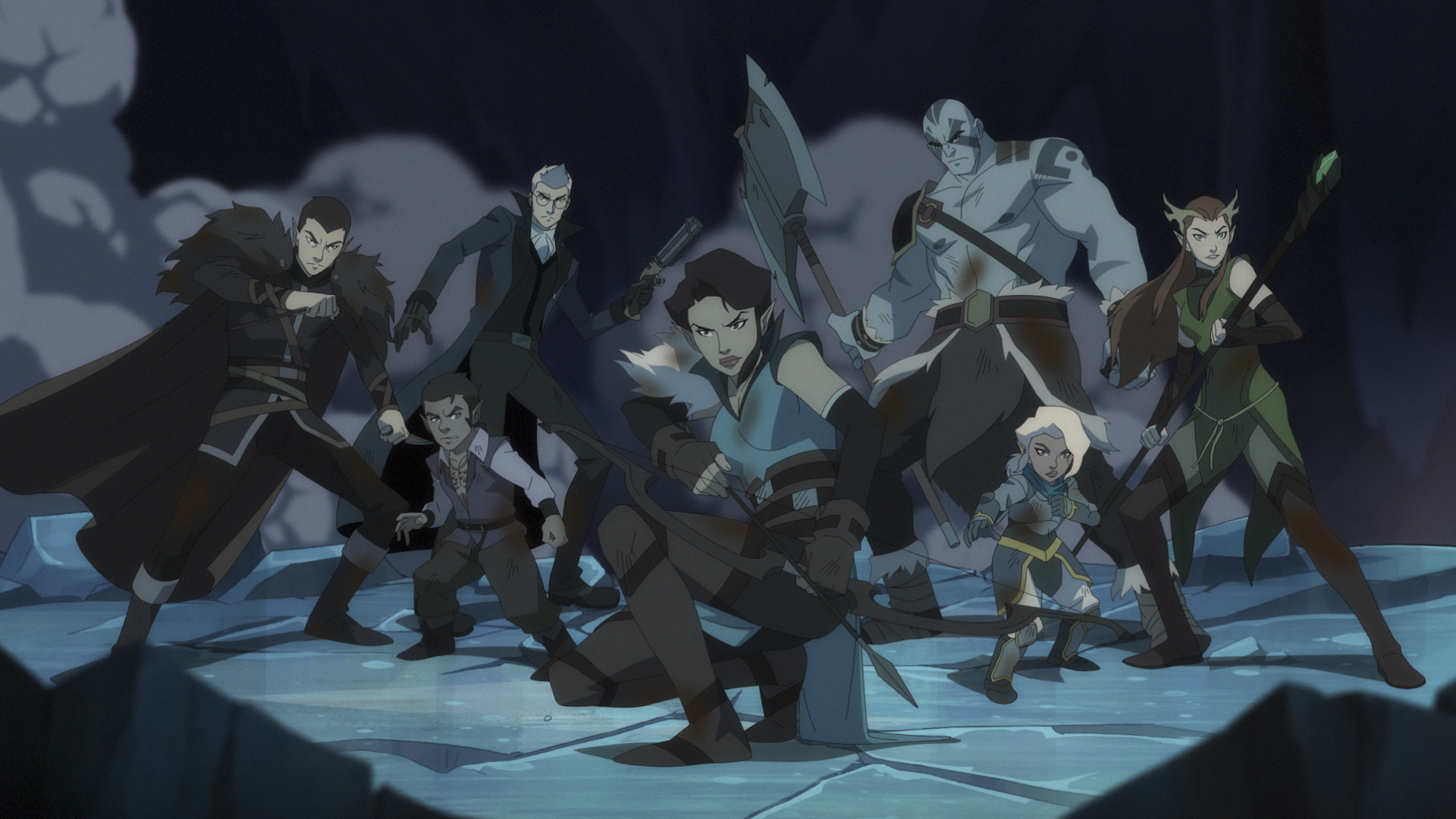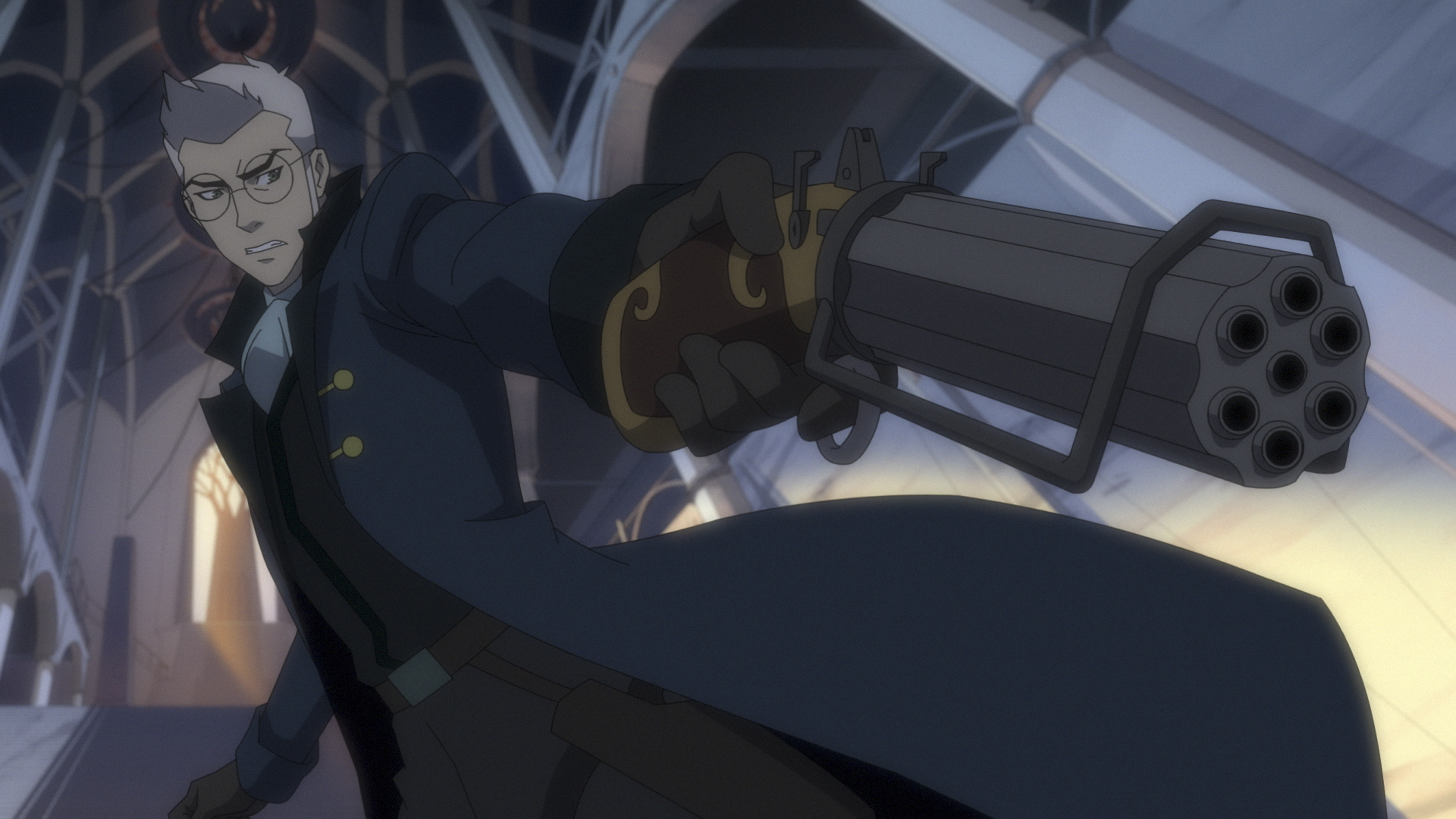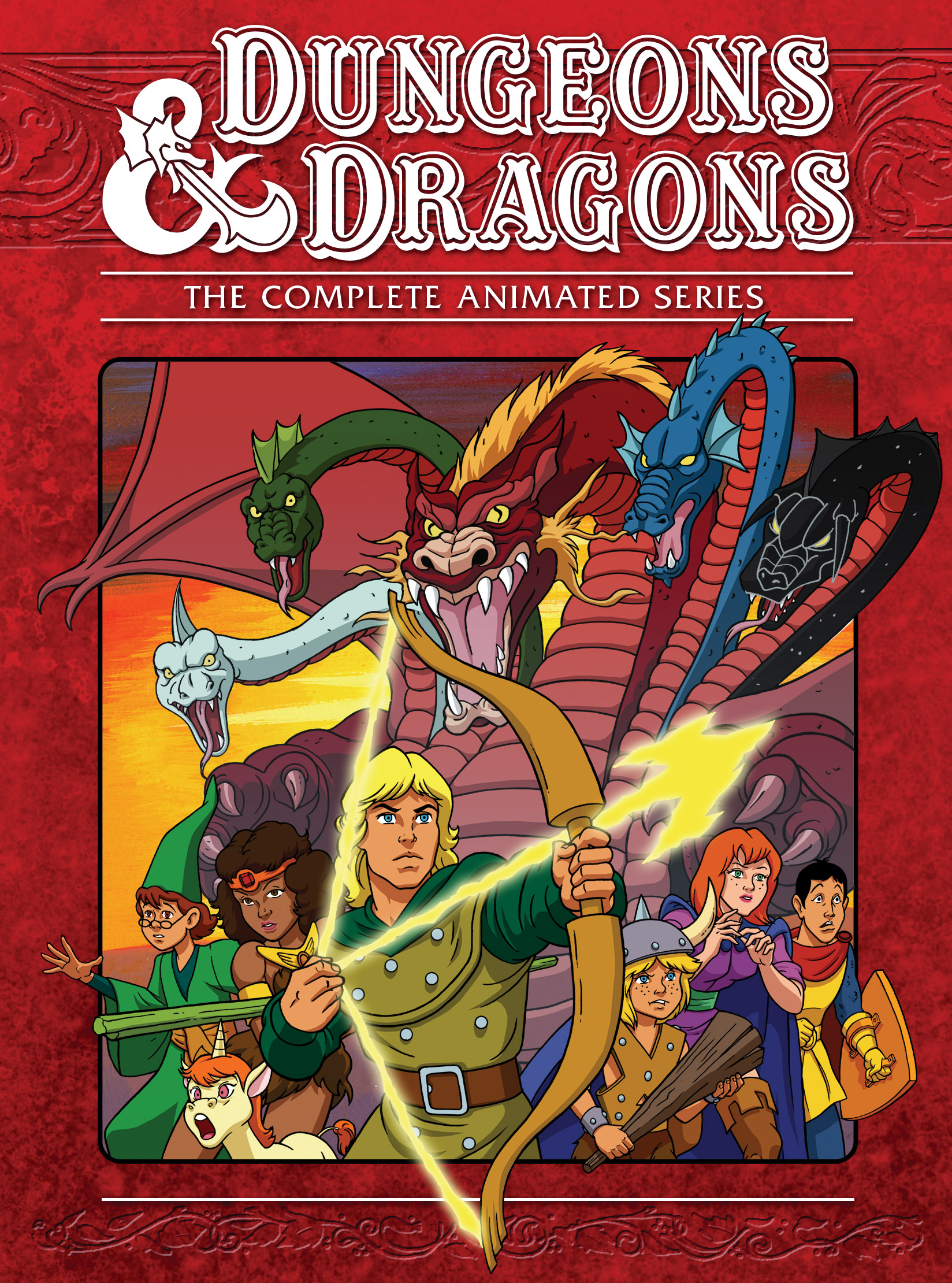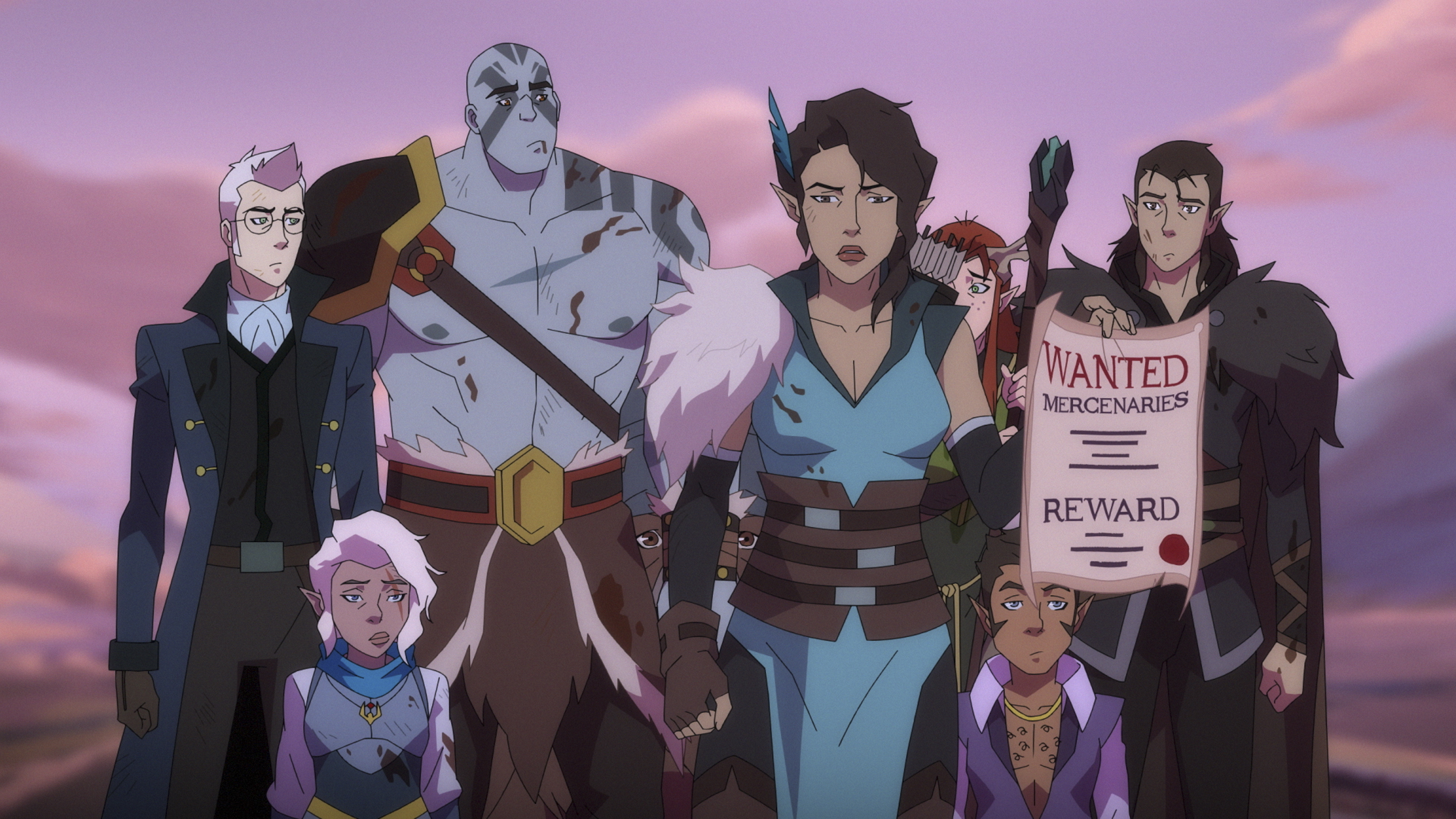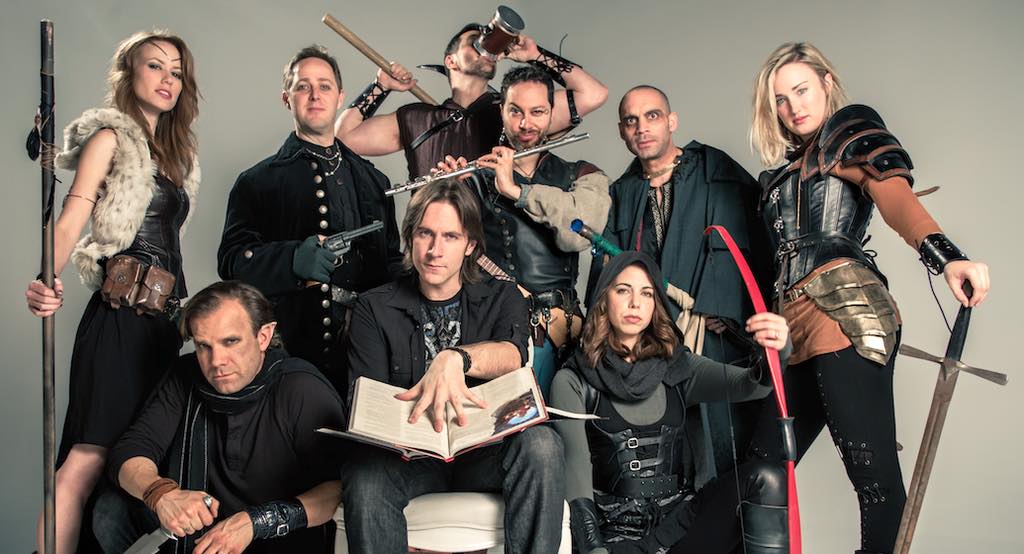The Legend of Vox Machina: DnD Hits The Big Time
Mark Brandon nerds out at the latest animated series to hit Prime Video.
DnD – or to give it its proper name, Dungeons & Dragons (we used to call it D&D but in the world of the hashtag, DnD is easier) – is by some reckoning one of the most successful games ever invented, and new animated feature series Critical Role: The Legend of Vox Machina is a fitting testament to its evolution across nearly fifty years.
A flashy, knowing and ballsy animated series which has just been ok’d for its second season, The Legend of Vox Machina would not exist without the nerdy, tabletop game I first played in 1979, yet to those of us in the know, its ancestral roots are clearly visible.
The series grew out of the highly popular web series Critical Role, an online show where 1.6m YouTube subscribers tune in to see a group of LA-based voice actors play the beautiful game. In Critical Role, the party of fantasy characters chose the name Vox Machina, and the series follows one of Vox Machina’s legendary campaigns.
The Legend of Vox Machina emerged from a Kickstarter campaign which aimed initially to produce a 22 minute animated short. When the campaign exceeded its $750,000 target in the first hour, hitting $4.3m at the end of the first day, the scene was set for further development. From the short film, it blossomed to ten episodes, but when Amazon Studios acquired streaming rights, the channel commissioned another 14, two more for Season One and 12 for Season Two.
For now, it seems like Amazon is onto a winner. The Legend of Vox Machina is riding high on Rotten Tomatoes with a 100% Fresh rating and a 94% rating from viewers.
While DnD has had a few outings in film and TV – several sub-par films and various depictions on TV, (recently Stranger Things, The Big Bang Theory and Community, to name but three) and a new movie in development from John Francis Daley and Jonathan Goldstein – this is not the first time DnD has appeared in animated form.
In the mid-eighties, US channel CBS commissioned three seasons of Dungeons & Dragons from Japan’s Toei Studios, which screened from 1983-85.
The ultimate failure of that series lay in its inability to reconcile the interests of its core audience – to see DnD in all its often dark and violent glory – and the neat box into which a network TV kids’ show had to fit. It led its category in ratings in the US for two years, but courted controversy, with one organisation claiming it had led to real-life violent deaths (church groups in the US at the time were also trying to ban the game for being ‘demonic’- there is an episode of Young Sheldon which deals with this torrid time for the game).
The problem for Dungeons & Dragons was that it was pitched as a kids’ show, airing in the lucrative after-school slot. But it’s not a kids’ game. I started playing as a teenager, but there were many adults playing then and even more now. You play, you enter dungeons full of traps which will skewer, behead or crush you, and monsters which suck out your intestines or your soul, others which swallow you and dissolve you in digestive acid.
Far from being too violent, Dungeons & Dragons wasn’t remotely as violent as even a fairly tame game, and as such not only failed the credibility test with us fans but failed to persuade many sceptics to give the game a go.
The Legend of Vox Machina successfully restores some honour.

|
From the get-go, it is an adult show, with the kind of foul language that everyone uses but the mainstream media pretends they don’t, and scenes of a sexual nature, as well as exactly the kind of bloody violence you’d associate from a world infested with dragons, vampires and lots of swords. It’s fast-paced and unpredictable. From the start you don’t get the feeling that there’s anywhere it can’t go: just like the game itself.
That can occasionally lead down blind alleys. There is plenty of attempted humour in the show, but like the improvised humour on Critical Role, it often falls quite flat and – sad to say – in some cases takes away from the drama of a scene. Equally, the sexual references are often pretty crudely realised, bordering on cringeable at times.
Animation comes courtesy of Titmouse (Big Mouth, Black Dynamite, Star Trek: Lower Decks etc) and is reminiscent of a rash of anime-influenced modern American productions such as Castlevania, which gives it a less stylised, more realistic feel than some of Titmouse’s other output. The end result is dynamic and exciting, not least the ‘hand-held camera’ conceit used during action scenes. But it lacks the moody finesse of Castlevania and the frequent moments of beauty and often eerie asides of even some fairly run of the mill anime. As such, some scenes, such as the Tal’Dorei Council Chamber or some of the forest encounters, look flat and uninspired, and palace corridors occasionally have a Scooby-Doo feel to them. Come on guys, ATMOSPHERE!!
But this is to nitpick. My main fear, hearing that a DnD series was in the offing, was that the content would fail to charm me. I should state here that I’m not a huge fan of Critical Role. I tend to play a more serious, atmospheric kind of game, and my players aren’t naturally extroverted voice actors (there is a term – ‘Mercer Effect’ – named after the dungeon master (moderator) in Critical Role, Matt Mercer, referring to new players’ expectations that their game of DnD will be like Critical Role...)
One of the major complaints of us DnD veterans regarding the Toei Studios Dungeons & Dragons series was how it took the setting and then basically threw away the rules, resulting in a car crash which hacked off the fans while acting as a poor advertisement for the game.
The Legend of Vox Machina, on the other hand, is a great expression of the game itself. When Scanlon Shorthalt – the sexaholic gnome bard (a character class with some magical powers, think: buffed wandering minstrel) – rescues a colleague by use of a shimmering translucent purple hand, it both looks exciting and is a genuine spell in the game, recognisable by aficionados (Bigby’s Hand, if you’re interested, a 5th level evocation spell). I could bore you with other spells and items I recognised, but there were many that had me guessing. Nothing like a bit of intrigue to keep you watching.
As with the game itself, you don’t need to understand the mechanics to enjoy the ride, in fact, it arguably detracts from it if you do know too much. The Legend of Vox Machina’s stated decision to make it “comprehensible to newcomers and fresh for existing fans”, as one of the actors, Travis Willingham, says, pays off handsomely. It works on both levels.
The other welcome development in Vox Machina is a reflection of what has happened to the DnD community thanks to the explosion of social media. One of the joys of DnD was always that you could play a character which bore no resemblance to you. The weedy nerd could play a musclebound barbarian (there is one here, Grog Strongjaw (Travis Willingham), the clumsy adolescent an acrobatic rogue (here Liam O’Brien plays the half-elf rogue, Vax) and if you were a man you could play a woman. Or a man. Or a non-binary. Of any one of a huge number of races. One of my friends used to play a hermaphrodite elven cleric who identified as a woman.
Vox Machina boasts a female gnome cleric, Pike Trickfoot (Ashley Johnson), a female half-elf druid Keyleth (Marisha Ray) and several humans. LGBT representation arrives most notably in the form of purveyor of magical items, Shaun Gilmore (Sunil Malhotra), but it’s hinted that Scanlon is bisexual, and there is plenty of other “hmm, intriguing...” content.
The ability to self-identify as anything you can imagine chimes perfectly with the zeitgeist, and has brought in huge number of female players to DnD as well as many trans, non-binary and many people simply wondering how they fit into today’s complex world. Not only that, but DnD’s essence as a social game is one which, if run well, can bring even the shyest, most socially-anxious out of their shells. During the pandemic, Zoom campaigns sprang up all over, and Critical Role (among other webcast DnD shows) went from strength to strength on YouTube.
Not that this is the main aim of the show, just a happy inclusion. Rather, The Legend of Vox Machina is a celebration of all that is best about DnD. It is probably a little raucous for some, a little crude for others, perhaps a little violent for those who prefer a game which resembles Maleficent to one which feels like The Witcher. But it is undeniably watchable and richly deserves the wider audience it will surely get thanks to Amazon’s investment.
For me, despite all its sophistication, all its flash-bangs and epic combats, The Legend of Vox Machina is still nowhere near as good as experiencing the game for yourself. But crucially – unlike its animated forebear – it offers an insight into just how awesome the game can be at its best.
Mark Brandon has been a fan of all things animated since he can remember, and a writer since he could put pen to paper. He lives in the south of Scotland, where he writes science fiction and fantasy, goes for walks in the country and lifts big bits of metal up and down (mainly for vanity’s sake).

